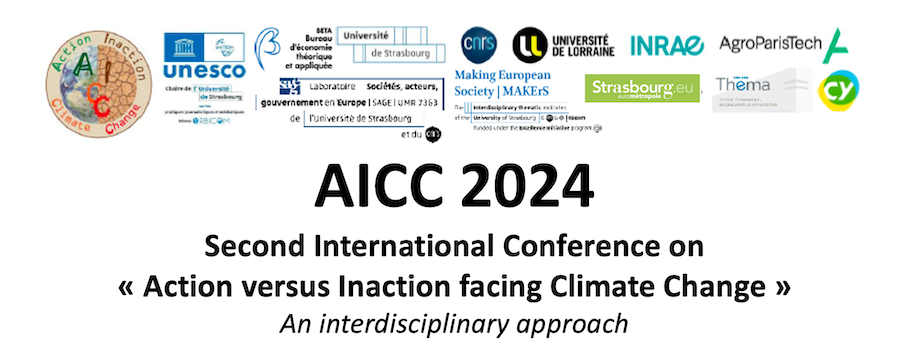
|
17 june Participants who are unable to attend the European Parliament today can follow the conferences via a Youtube live stream at https://youtube.com/live/FzguTEPby_w?feature=share. What is the AICC consortium proposing for the June 17-18, 2024 conference? Our aim is to start with "small" elements, feasible remedies and approaches, and convince others of their value and feasibility. These approaches will be derived from the research described and initiated by the topics featured on our Youtube channel. Over the course of two days, the AICC conference aims to meet these expectations by bringing together scientists from a wide range of disciplines and stakeholders. The AICC conference aims to bring together the views of different disciplines on different aspects of climate change, and to organize a debate that will benefit an audience made up of specialists, stakeholders and neophytes alike. The first day, held at the European Parliament, will feature plenary presentations and round-table discussions led by internationally renowned specialists. The second day, held at Pôle Européen de Gestion et d'Économie, will feature mainly thematic sessions, each of which will bring together 3 or 4 specialists from different disciplines, but offering a contribution on the same theme. Themes could include, but are not limited to:
These two days will echo these topical issues and highlight the dynamics of the University of Strasbourg on these topics, whether through the research themes of BETA, SAGE and LIVE, or the work of FERED on the sustainability of economic and territorial systems, as well as the structuring dimension imparted by the Interdisciplinary Thematic Institute MAKErS (Making European Society), which associates especially BETA and SAGE and develops comparative and internationalized work on environmental, technical and social risks in sustainability. The communicative dimension of these issues will be studied in particular by the Unesco Chair in Journalism and Media Practices. Lastly, given that the colloquium's scope covers themes of interest to both academic research and social demand, the organization team has decided to organize roundtables and parallel sessions addressing specific themes. These will bring together both researchers and members of the civil society, with the aim of stimulating fruitful exchanges and co-constructing the future of our territories. Both empirical and theoretical contributions, from any discipline, in French or English, are welcome. A two-page abstract (Times New Roman, 12, references included), in PDF format, is requested by March 11, 2024. Submissions must be made exclusively via the conference website and must contain the following information:
Authors may submit more than one paper. Permanent international AICC Committee:
AICC 2024 Committee:
With the financial support of:
|
| Online user: 2 | Privacy |

|
